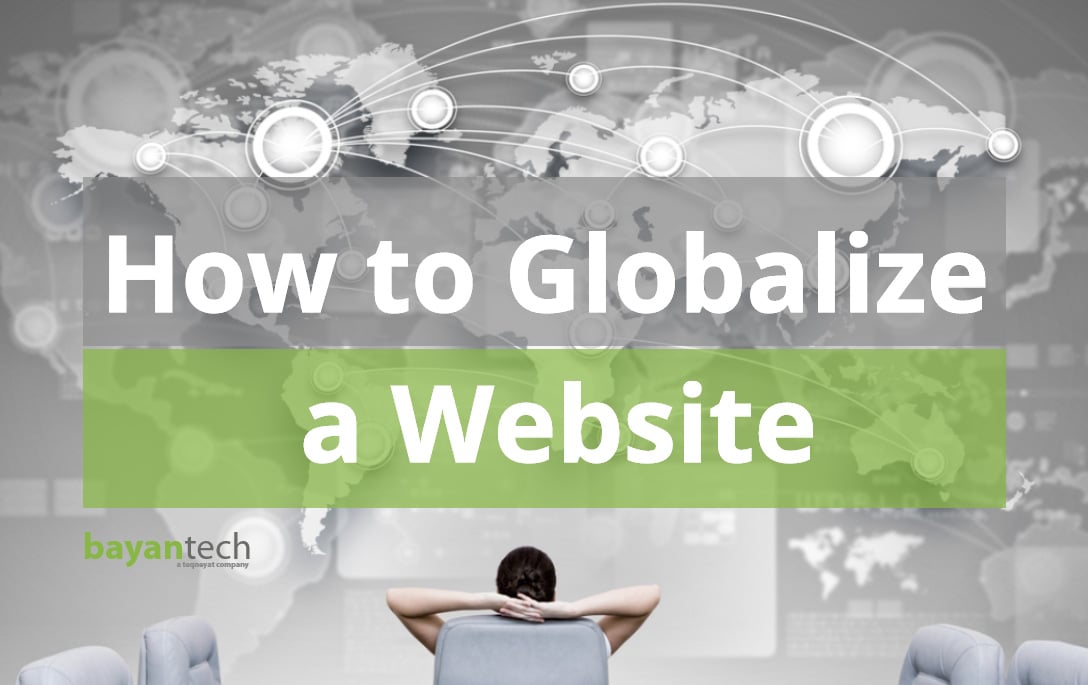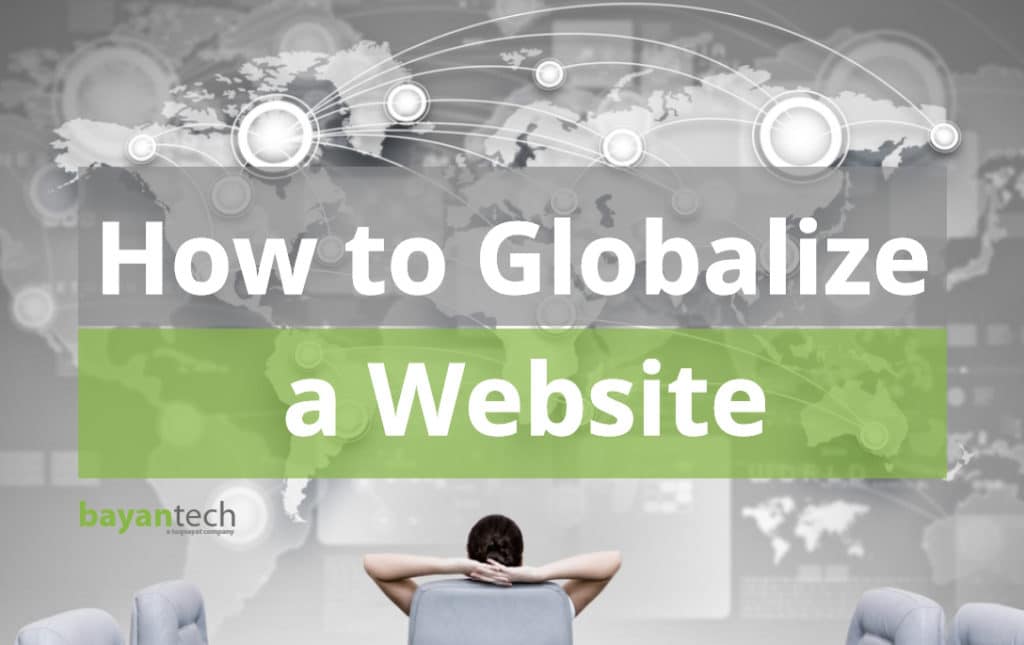When you're ready to take your website to the next level, globalizing it is the key step you can't afford to miss. Imagine your online presence reaching audiences far and wide, breaking through geographical barriers and making a lasting impact.
It’s not just about translating content; it's about adapting your website to meet the cultural, linguistic, and technical needs of users across the globe. But how do you start this transformation? You might be feeling overwhelmed, but don't worry. This guide will simplify the process, ensuring that your website is not just visible, but also thriving in international markets. With strategic insights, you'll learn how to optimize your site for different regions, improve user experience, and boost engagement. And if you're looking for the perfect hosting partner to support your global ambitions, Hostinger offers exceptional web hosting services tailored for websites of all sizes. With features like free domain registration, unlimited SSL certificates, and multilingual support, Hostinger ensures your site is fast, secure, and always accessible. Plus, with their special offer, you can save big on hosting plans! Discover Hostinger's 95% discount here and set your website on the path to worldwide success. Ready to unlock your website's full potential? Dive into the article and discover the secrets to globalizing your website effectively and efficiently.

Credit: fastercapital.com
Introduction To Website Globalization
Expanding your website's reach to a global audience can significantly boost your business. It opens doors to new markets, increases brand visibility, and enhances user engagement. Website globalization involves tailoring your site to cater to diverse cultural, linguistic, and regional preferences. In this section, we will explore the essential aspects of website globalization, including its definition and importance.
Defining Website Globalization
Website globalization is the process of adapting a website to different languages and cultures. This involves more than just translating text. It requires understanding cultural nuances and local preferences. The goal is to provide a seamless user experience for people from different regions.
- Translation of content into multiple languages
- Adapting visual content to cultural preferences
- Ensuring compliance with local laws and regulations
Effective globalization enhances user satisfaction and engagement. It builds trust and loyalty among international visitors.
Importance Of Reaching A Global Audience
Reaching a global audience can transform your business. It enables access to new markets and potential customers worldwide. Here's why it matters:
| Reason | Benefit |
|---|---|
| Increased Market Reach | Access to a larger customer base |
| Brand Recognition | Enhanced visibility across regions |
| Diverse Revenue Streams | Reduced dependence on a single market |
With Hostinger Web Hosting Services, you can easily manage the technical aspects of globalization. Its features include free domain registration, free automatic website migration, and unlimited free SSL certificates. These tools ensure your site remains fast, secure, and accessible globally.
Moreover, Hostinger offers multilingual customer support to assist you in navigating the complexities of website globalization. This ensures that your website is optimized for speed and security, keeping your global audience satisfied.

Credit: bayan-tech.com
Key Considerations For Globalizing Your Website
Globalizing a website involves more than just translating content. It requires understanding different cultures and languages. Proper strategies can enhance user experience and engagement across the globe. Below are key considerations to ensure your website resonates with a global audience.
Understanding Cultural Differences
Culture plays a crucial role in how users interact with websites. It's important to understand cultural differences to effectively globalize your content.
- Visual Preferences: Colors and images can have different meanings in different cultures.
- User Behavior: Navigation preferences vary, impacting how users find information.
- Content Sensitivity: Some topics may be sensitive or taboo in certain regions.
Conduct thorough research to identify these variations. Adjust your design and content accordingly for each target market.
Language And Translation Strategies
Language translation is vital for making your website accessible globally. Here are strategies to consider:
- Professional Translation Services: Use expert translators for accuracy and cultural nuance.
- Multilingual SEO: Optimize keywords in each language to boost search engine visibility.
- Localized Content: Adapt content for local contexts, not just language.
- Automated Translation Tools: Use cautiously, as they may lack cultural sensitivity.
Ensure your website provides a seamless experience in every language. This encourages user interaction and trust.
| Key Element | Consideration |
|---|---|
| Language | Use professional translation for accuracy. |
| Culture | Adapt visuals and content to local preferences. |
| SEO | Incorporate multilingual SEO for broader reach. |
Implementing these strategies ensures your website appeals to a global audience. This can improve engagement and conversion rates across different regions.
Technical Aspects Of Website Globalization
Expanding a website's reach beyond borders requires careful planning. Technical elements play a crucial role in ensuring smooth functionality across different regions. Implementing the right tools and strategies can enhance visibility and user experience globally.
Implementing A Multilingual Cms
A Multilingual CMS is essential for website globalization. It allows content in multiple languages, catering to diverse audiences. Popular CMS options like WordPress offer plugins for easy language integration.
Benefits of using a multilingual CMS:
- Improved user engagement with language preference options
- Streamlined content management across languages
- Enhanced SEO performance with localized keywords
Hostinger provides hosting solutions optimized for CMS platforms like WordPress, ensuring efficient website management.
Ensuring Seo Optimization For Global Reach
SEO optimization is vital for attracting international traffic. It involves strategic keyword placement and geo-targeting. Implementing hreflang tags helps search engines identify content language and region.
Key SEO strategies for global reach:
- Use localized keywords to match search queries in different languages.
- Ensure fast loading times to improve user experience.
- Implement structured data for better search engine understanding.
Hostinger offers features like free CDN and rapid page-loading times that contribute to better SEO performance.
Optimizing these technical aspects ensures a seamless global presence. Hostinger’s services can support your website’s international ambitions, offering tools for multilingual setup and enhanced SEO.
Design And User Experience
Creating a website that appeals globally requires careful attention to design and user experience. These elements are crucial for engaging audiences from different regions and cultures. Ensuring your website is user-friendly and culturally relevant can enhance visitor retention and conversion rates.
Adapting Design For Different Cultures
Design preferences vary across cultures. Aesthetic elements such as color schemes, imagery, and layout can influence how users perceive a website. For instance, while some cultures prefer minimalistic designs, others might favor vibrant colors and intricate details.
- Research cultural design preferences before finalizing the look of your website.
- Use symbols and colors that resonate positively with the target audience.
- Consider cultural nuances in imagery and content to avoid misinterpretations.
Adapting your website design to reflect cultural sensibilities can build trust and foster engagement.
Enhancing User Experience Across Regions
User experience (UX) plays a significant role in global engagement. A seamless and intuitive UX can make navigating your website easier for international visitors. Implementing multilingual support and localized content can greatly improve user satisfaction.
- Provide multilingual options to cater to non-native speakers.
- Use clear and concise language to ensure easy comprehension.
- Optimize loading times to cater to regions with varying internet speeds.
Focus on mobile responsiveness as mobile usage is prevalent worldwide. Ensure your site functions effectively on various devices and screen sizes.
Integrating AI tools like Hostinger's AI Web App Builder can aid in SEO-optimized content creation, enhancing visibility and engagement across different regions.
| Feature | Benefit |
|---|---|
| Multilingual Support | Enables users to access content in their preferred language. |
| Mobile Responsiveness | Ensures the website is accessible on smartphones and tablets. |
| Optimized Loading | Provides fast access, improving user experience globally. |
Legal And Compliance Considerations
Globalizing a website involves more than just translating content. It requires a thorough understanding of legal and compliance considerations. These considerations ensure your website operates smoothly in different regions. Failing to comply can lead to serious consequences, including fines and legal action. Let's explore two critical aspects of legal compliance.
Understanding International Privacy Laws
Privacy laws differ significantly across countries. The General Data Protection Regulation (GDPR) in Europe is one of the strictest. It mandates how businesses handle personal data. Businesses must obtain clear consent from users before collecting their data. They should also provide options for users to access and delete their data.
In the U.S., the California Consumer Privacy Act (CCPA) has similar guidelines. Businesses must disclose the types of data collected and allow users to opt-out of data sales. Understanding these laws is crucial for global operations. Businesses should regularly review privacy policies to ensure compliance.
Adhering To Local Regulations
Each country has unique regulations that affect online businesses. These include consumer protection laws, tax regulations, and electronic commerce rules. For instance, in the EU, the Consumer Rights Directive ensures fair treatment for online consumers. It requires transparent information about products, pricing, and return policies.
In China, businesses must comply with the Cybersecurity Law. This law mandates data storage within China and requires security assessments. Ignoring local regulations can hinder business operations. Companies should seek legal advice to navigate these complex landscapes.
Regular updates and training on local laws can help maintain compliance. Businesses can also use tools to monitor legal changes, ensuring they stay informed.
Pricing And Cost Management
Expanding a website globally involves careful pricing and cost management. This ensures the project remains within budget and meets international standards. Understanding the costs involved is crucial for a successful global transition.
Budgeting For Translation And Localization
Translation and localization are vital for reaching a diverse audience. Budgeting for these services requires a detailed plan. Here's what you need to consider:
- Translation Costs: This varies based on language and content complexity.
- Localization Services: Adapting content to local culture and norms.
- Software Tools: Using AI tools for efficient translation processes.
Allocating funds for these elements ensures content resonates with local users. Hostinger’s multilingual support aids in this process, enhancing global reach.
Cost-effective Strategies For Global Expansion
Implementing cost-effective strategies can significantly lower expenses. Consider these approaches:
- Choose Affordable Hosting Plans: Hostinger offers plans starting at US$ 2.99/month.
- Utilize Free Services: Take advantage of Hostinger’s free SSL certificates and CDN.
- Leverage AI Tools: Use AI for content creation and SEO optimization.
Efficient use of resources can maximize budget. Hostinger's discounted rates and free domain registration make it a cost-effective choice for global expansion.
Pros And Cons Of Globalizing A Website
Globalizing a website means reaching audiences beyond local boundaries. It can transform how businesses engage with customers worldwide. Understanding the pros and cons helps in making informed decisions. Let's explore the advantages and challenges of having a global presence.
Advantages Of A Global Presence
Expanding your website globally offers numerous benefits. Here are some key advantages:
- Increased Audience Reach: Access to new markets and diverse audiences.
- Enhanced Brand Visibility: Greater exposure and brand recognition.
- Higher Revenue Potential: Opportunity to tap into international sales.
- Competitive Advantage: Stand out against local and international competitors.
- Scalable Growth: Flexibility to grow your business on a global scale.
A global presence can significantly boost your business's reach and profitability.
Challenges And Potential Drawbacks
While the benefits are enticing, globalizing a website comes with challenges. Consider the following potential drawbacks:
- Cultural Differences: Understanding diverse customer preferences and adapting content accordingly.
- Technical Issues: Ensuring website functionality across different regions.
- Legal Compliance: Navigating international laws and regulations.
- Language Barriers: Translating content to cater to non-native speakers.
- Increased Costs: Higher expenses for localization and marketing.
Addressing these challenges requires careful planning and resource allocation.
Expert Tips For Successful Website Globalization
Website globalization can expand your reach to international markets. It's crucial to adapt your website to different languages and cultures. This ensures relevance and accessibility for global audiences. Discover expert tips to help globalize your website effectively.
Leveraging Local Expertise
Engaging with local experts can significantly enhance your website globalization efforts. They understand cultural nuances, local preferences, and language intricacies. Here are some ways to utilize local expertise:
- Hire translators familiar with regional dialects.
- Collaborate with local content creators for authentic content.
- Consult local SEO experts to optimize for regional search engines.
These steps ensure your website resonates with local audiences, enhancing user engagement.
Continuous Monitoring And Adaptation
Website globalization is an ongoing process. Continuous monitoring and adaptation are vital for sustained success. Consider these practices:
- Use analytics tools to track user behavior and preferences.
- Gather feedback through surveys or user reviews.
- Regularly update content to reflect current trends and user feedback.
This proactive approach helps in maintaining a relevant and user-friendly website. It keeps your global audience engaged and satisfied.
| Feature | Description |
|---|---|
| Hostinger Web Hosting | Offers services for website creation and maintenance, including domain registration and e-commerce solutions. |
| Benefits | 24/7 multilingual support, security features, and a 99.9% uptime guarantee. |
| Pricing | Plans start at US$ 2.99/month with options for different storage needs. |
Hostinger's features and benefits make it a reliable choice for website globalization. Their support and resources cater to a global audience's needs.
Recommendations For Businesses Considering Globalization
Expanding a website globally presents numerous growth opportunities. Businesses can reach new markets, diversify revenue sources, and build a global brand presence. However, the process requires strategic planning and careful execution. Below are key recommendations for businesses embarking on this journey.
Ideal Scenarios For Website Globalization
Globalization is ideal for businesses with a unique product or service that appeals internationally. Companies with existing international demand or inquiries should consider expanding their website globally. Likewise, businesses offering digital products or services with no geographic limitations can benefit from globalization efforts.
- Unique products with international appeal
- Existing international demand or inquiries
- Digital products or services without geographic constraints
Tips For Small And Medium Enterprises
SMEs should leverage affordable hosting solutions like Hostinger to manage costs effectively. Hostinger offers features like free domain registration and SSL certificates, essential for secure international operations. Its multilingual customer support ensures smooth communication, crucial when entering new markets.
SMEs should prioritize website speed and security. Hostinger optimizes speed for rapid page-loading times, enhancing user experience. It also provides robust security measures like protection from DDoS attacks and two-factor authentication, safeguarding customer data.
| Feature | Benefit |
|---|---|
| Free SSL Certificates | Secure international transactions |
| Multilingual Support | Easy communication across borders |
| Rapid Page-Loading Times | Improved user experience |
| DDoS Protection | Enhanced security for customer data |
Choosing the right plan is crucial. Hostinger's Premium Plan offers 25 GB SSD storage and supports up to 25 websites, ideal for small businesses. For medium enterprises, the Business Plan provides 50 GB NVMe storage and supports up to 50 websites, offering more capacity.
- Select a hosting plan that suits your business size
- Ensure multilingual support for seamless communication
- Focus on security and speed optimization
Hostinger's 99.9% uptime guarantee ensures consistent site availability, vital for maintaining a global presence. Utilize Hostinger's AI tools for SEO-optimized content creation, helping your site rank better in search results worldwide.

Credit: www.aianta.org
Frequently Asked Questions
How To Make Your Website Global?
To globalize your website, implement multilingual support, use geo-targeting, optimize for international SEO, and offer local currency options. Ensure fast loading times worldwide by using a reliable CDN.
What Is Website Globalization?
Website globalization is adapting a website for diverse audiences worldwide. It involves translating content, localizing design, and optimizing for regional search engines. This enhances user experience, increases accessibility, and expands reach to international markets, boosting global visibility and engagement.
What Is A Global Web Strategy?
A global web strategy involves creating a consistent online presence across international markets. It targets diverse audiences with tailored content and localized experiences, enhancing brand visibility and engagement worldwide.
How To Create A Website For A Different Country?
Choose a domain with the country's extension. Use local hosting for better performance. Translate content accurately and consider cultural differences. Optimize for local SEO by using region-specific keywords. Set up hreflang tags to target the desired country.
Conclusion
Expanding your website globally enhances reach and potential. Implement language options and localize content to connect with diverse audiences. Consider cultural nuances for better engagement. Choose reliable hosting services for smooth operation. Hostinger offers essential tools for global success. Their services boost speed and security. Simplified management and customer support streamline processes. Explore their plans to find the right fit for your needs. A global website opens opportunities for growth. Make sure your site is ready for worldwide visitors and the challenges they bring.


